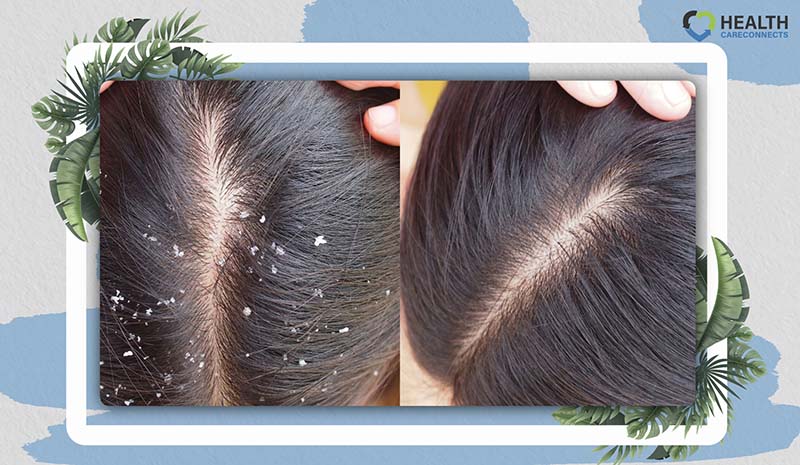Have you ever asked yourself, “Is grapeseed oil good for your hair?” This natural oil is a hidden gem, rich in nutrients, antioxidants, and essential fatty acids, making it a superb choice for both skin and hair care. Grapeseed oil is particularly beneficial for hair health as it nourishes the scalp and enhances the strength and shine of your locks. It also maintains skin hydration and can help reduce inflammation. As its popularity grows, grapeseed oil is increasingly featured in many hair and skincare products.
This blog will explore the science-based benefits of grapeseed oil for hair. We will examine what makes this oil unique, offer tips on how to use it effectively, and guide you through choosing the highest quality oil for your hair care routine.
Is Grapeseed Oil Good for Your Hair?
Grapeseed oil is a versatile choice not only for culinary uses but also as a nourishing treatment for your hair. Derived from the seeds of grapes, often as a byproduct of wine production, this oil is prized for its lightweight texture and quick absorption properties.
According to cosmetic chemist Manuela Marcheggiani, grapeseed oil is abundant in polyunsaturated fatty acids, with a notably high content of linoleic acid. It also contains a significant amount of vitamin E, phenolic compounds, and other antioxidants.
Marcheggiani highlights that linoleic acid plays a crucial role in maintaining the skin’s barrier function, which supports hydration and promotes a smoother complexion. Vitamin E, known for its potent antioxidant properties, helps protect the skin and hair from environmental stressors and oxidative damage.
Furthermore, the phenolic compounds in grapeseed oil offer anti-inflammatory benefits, proving to be effective in soothing irritated skin and scalp conditions.

Benefits of Grapeseed Oil for Hair
Applying grapeseed oil can deeply nourish your hair and make it strong. Here are the top seven benefits of choosing grapeseed oil for hair:
Enhancing Blood Circulation
Rubbing grapeseed oil onto your scalp can help boost blood flow. This may support hair growth by supplying nutrients and oxygen to the hair roots.
Combating Dandruff and Scalp Buildup
Grapeseed oil has anti-inflammatory properties, which can help decrease inflammation in your scalp. This reduces the chances of developing conditions like dandruff or scalp psoriasis.
The oil also inhibits sebum production, decreasing the amount of sebum on your scalp and helping reduce flaky scalp and dandruff.

Stimulating Hair Growth
Grapeseed oil promotes hair growth because it contains flavonoids, vitamin E, and linoleic acid. Applying this carrier oil to the scalp can increase hair length and thickness.
The essential fatty acids, antioxidants, and vitamins in grapeseed oil improve scalp condition and encourage new hair growth.
Strengthening Hair Roots
Grapeseed oil can seep into the hair shaft, fortifying each strand from within.
This strengthens the hair roots, leading to healthier and stronger hair that can resist breakage and daily wear.
Protecting Against Environmental Stressors
The antioxidants and fatty acids in grapeseed oil protect your hair from damaging elements like pollution, heat, and UV radiation.
Adding the oil to your hair care routine might reduce damage caused by these stressors and help your hair stay strong and healthy.

Enhancing Shine and Vibrancy
Grapeseed oil can work wonders as a natural hair conditioner, giving your hair a healthy shine and vibrancy. Its light texture doesn’t leave your hair feeling greasy or heavy, making it perfect for daily use.
Applying 2-3 drops of grapeseed oil directly to damp hair after showering can act as an excellent shine and moisture booster.
Sealing in Moisture and Minimizing Frizz
A great benefit of grapeseed oil is its ability to lock moisture into the hair shaft, reducing dryness and frizz.
Adding a few drops of grapeseed oil to your hair can help keep your tresses smooth, shiny, and well-hydrated.
Does Grapeseed Oil Pose Any Risks?
While grapeseed oil offers many benefits, it can also have some side effects:
- Headaches: Using grapeseed oil on your hair and scalp can sometimes cause headaches.
- Dizziness and Nausea: Some individuals may experience dizziness and nausea after using grapeseed oil.
- Allergic Reactions: If you are allergic to grapes, grapeseed oil can cause redness, itchiness, or rashes on your skin.
- Skin Irritation: Applying grapeseed oil directly to chapped skin or open wounds can cause irritation.
How to Use Grapeseed Oil for Hair?
Grapeseed oil is readily available online and in grocery stores. If you’re interested in incorporating grapeseed oil into your hair care routine, experiment to see what works best for your hair type and fits into your existing regimen. Here are some suggestions on how to use it:
- As a Leave-In Treatment: Once or twice a week, apply a few drops of grapeseed oil to your hair and/or scalp. Leave it on for 20-30 minutes, then wash your hair as usual.
- For a Moisturizing Boost on Wash Day: Mix a small amount of grapeseed oil with your shampoo or conditioner when washing your hair for an additional moisturizing boost.
- For Styling: If you’re prone to dryness and frizz, apply a few drops to the lengths of your hair after showering. This helps reduce frizz and improve moisturization.
Conclusion
By exploring the benefits of grapeseed oil, you might find yourself asking, “Is grapeseed oil good for your hair?” Indeed, this natural oil is packed with nutrients, antioxidants, and essential fats, offering a powerful solution for various hair concerns.
Grapeseed oil not only supports hair growth but also provides essential moisture. It can be used in multiple ways in your hair care regimen: as a lightweight moisturizer, a hot oil treatment, or a frizz control spray, each method enhancing the health and appearance of your hair.
For the best results, opt for pure, cold-pressed grapeseed oil and always follow recommended safety guidelines. Consulting with a hair care expert can help you maximize the full potential of grapeseed oil in maintaining healthy, lustrous locks.
For those seeking more information and honest product reviews, I recommend visiting HealthCareConnect.

Dr. Joyce Slater: Your Guide to Informed Health Choices
Dr. Joyce Slater shines as a distinguished expert in the field of nutrition and public health. Contributing her vast expertise to HealthConnectbc, she embodies a deep-seated passion for enhancing public well-being. As a respected figure in her field. Dr. Slater’s academic journey and professional achievements are nothing short of inspirational.
Holding a significant position as a researcher and educator, Dr. Slater has delved deeply into the intricacies of food literacy and nutritional science. Her work, prominently featured in numerous esteemed scientific publications, underscores her dedication to expanding our understanding of food’s role in health and society.
At the heart of Dr. Slater’s professional ethos is a profound desire to positively impact individual lives through education and research. She often says, “Empowering people with the knowledge to make healthier choices is the most rewarding aspect of my work.” This principle is the cornerstone of her involvement with HealthConnectbc, where she strives to provide reliable and practical health advice.
Dr. Slater’s contributions to HealthConnectbc are multifaceted: academically, she offers insights into the complex world of nutrition and health, enhancing both public understanding and professional practices. Additionally, she is instrumental in guiding and inspiring the next generation of health professionals, thus fostering future excellence in the field.
Juggling rigorous research with her educational duties, Dr. Slater demonstrates an unwavering commitment to her profession. Her approachable nature and genuine concern transcend the confines of academia, touching the lives of everyone she interacts with. Dr. Slater looks forward to continuing her journey of discovery and education, dedicated to the ongoing improvement of public health and nutrition.
At HealthConnectbc, Dr. J. Slater is not just a contributor; she is a guiding light, dedicated to enlightening and motivating individuals towards a healthier and more informed lifestyle.
PUBLISHED ARTICLES
- Food literacy competencies: A conceptual framework for youth transitioning to adulthood (2018)
- Self-perceived eating habits and food skills of Canadians (2016)
- Challenges to acquiring and utilizing food literacy: Perceptions of young Canadian adults (2016)
- Socio-demographic and geographic analysis of overweight and obesity in Canadian adults (2009)
- Sustainable well-being: Concepts, issues, and educational practices (2014)

